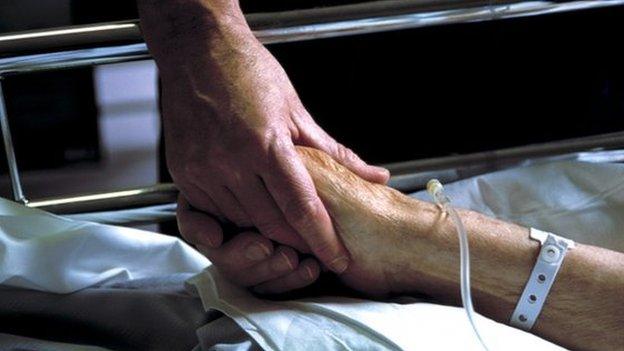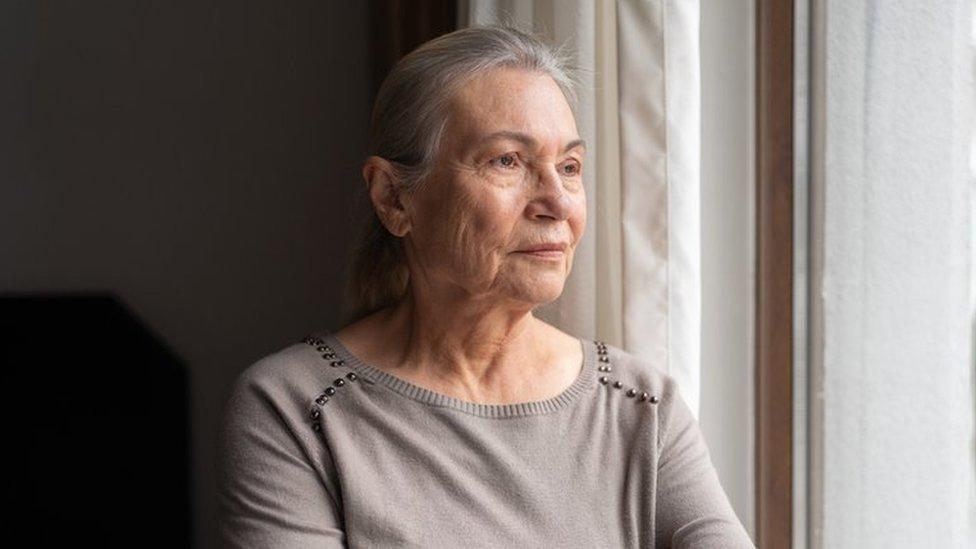Euthanasia campaigner Richard Selley dies at Swiss clinic
- Published
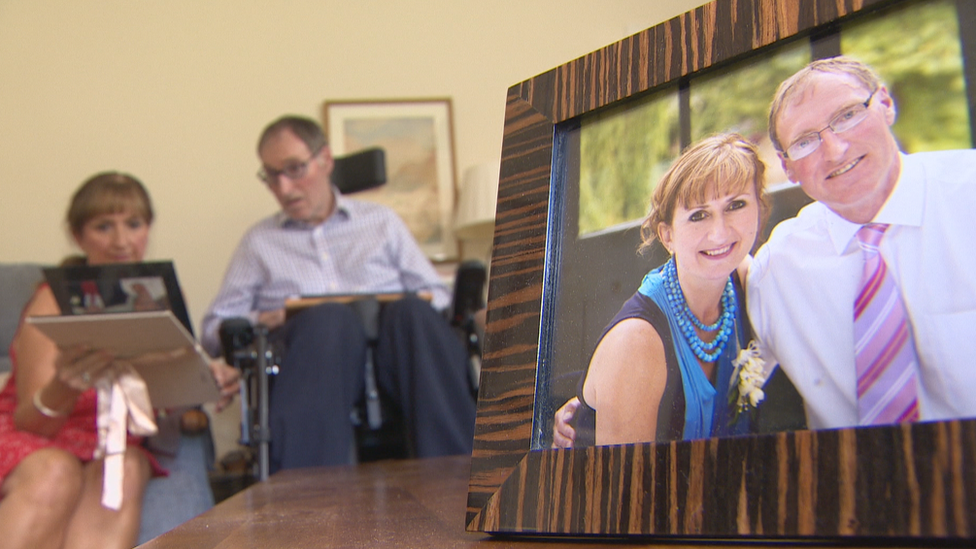
Richard Selley and his wife Elaine travelled to Switzerland earlier this week
A former teacher from Scotland who campaigned for the legalisation of euthanasia has died at a Swiss clinic.
Richard Selley, 65, was suffering from motor neurone disease (MND). He had campaigned for a change in the law in a blog and a book on the issue.
He had travelled from his home at Glenalmond near Perth to the clinic in Zurich earlier this week.
"Knowing that I will die very soon is a surreal experience, but it is my choice," he said.
Mr Selley's wife Elaine wrote online: "I am writing this post from my hotel room in Zurich. Richard died very peacefully at lunchtime today. His brother Peter and I were at his side.
"At Dignitas, in a clinically clean room, well appointed but devoid of any personal touches, we could feel all the love that has been shared with us over the years.
"The end was dignified and calm, exactly as Richard wanted. He had taken control of his own destiny."
Mr Selley, who had to talk-type to communicate, had spoken about being a "prisoner" in his own body and he has been campaigning for a change in the law.
Richard Selley spoke to the BBC about his decision to end his life
In July he wrote an open letter to MSPs, external calling for reform.
He said in a video recorded before his journey to Switzerland: "Having to be able to fly means that I am choosing to die earlier than I would prefer.
"If an assisted death was possible in Scotland, I would be able to die at a time of my choosing, at home."
He added: "I hope that members of the Scottish parliament support an assisted dying bill in the future.
"I think the momentum for a change in the law is growing."
The campaign group Dignity in Dying published a report this week recommending that assisted dying is legalised in Scotland "to give terminally ill, mentally competent adults a further option of escaping or avoiding a period of unbearable suffering at the end of lives".
It claimed that, even with high levels of palliative care, hundreds of patients still had no relief from pain at the end of life.
The campaign's director Ally Thomson said: "Our thoughts are with Elaine and her family. Richard and Elaine showed immense bravery and dignity in sharing their story and speaking out about the injustice they both suffered under Scotland's outdated, broken law in their final weeks together."
She added: "As Richard pointed out in his final message, he received outstanding palliative care. But it was simply not enough to guarantee him the swift, peaceful and dignified death he wanted.
"Richard is not alone - this week we published research which finds that even with universal access to the best hospice care, 11 Scots a week would still die with absolutely no relief of their pain.
"Surely those people whose suffering is beyond the reach of palliative care deserve another option?"
Previous attempts to introduce new legislation have failed to get through the Scottish Parliament.
Opponents of euthanasia argue that changing the law risks exposing people to abuse, coercion and exploitation.
Dr Stuart Weir, national director at Christian charity CARE for Scotland, said the Dignity in Dying report failed to address those risks.
He said: "We believe this report muddies the waters by suggesting palliative care and assisted suicide are two sides of the same coin.
"The truth is that legalising assisted suicide goes right against the ethos of palliative care and in fact would undermine it."
He said there was a debate to be had about the provision of palliative care across Scotland, but that was "a separate conversation to whether we should legalise something as dangerous as assisted suicide, with all the consequences of doing so".
- Published2 September 2019
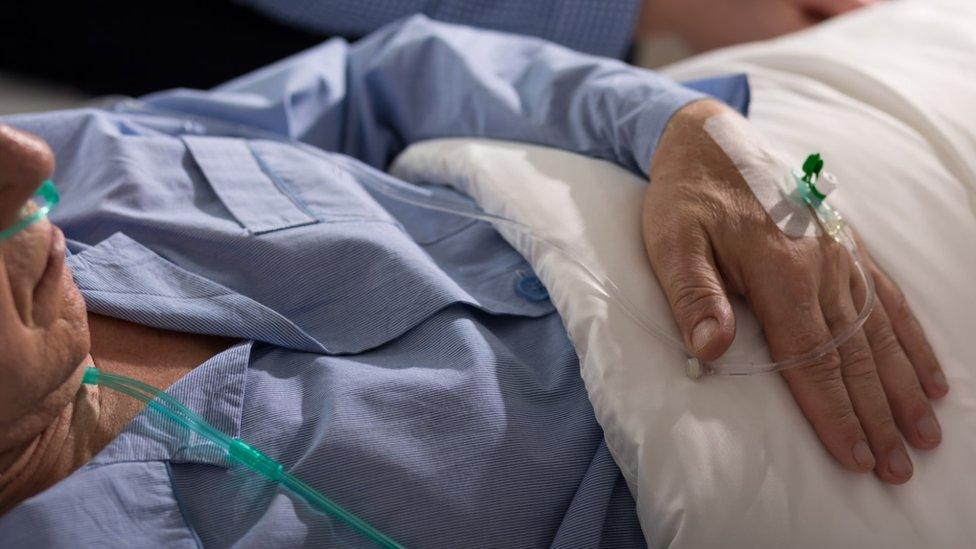
- Published4 July 2019
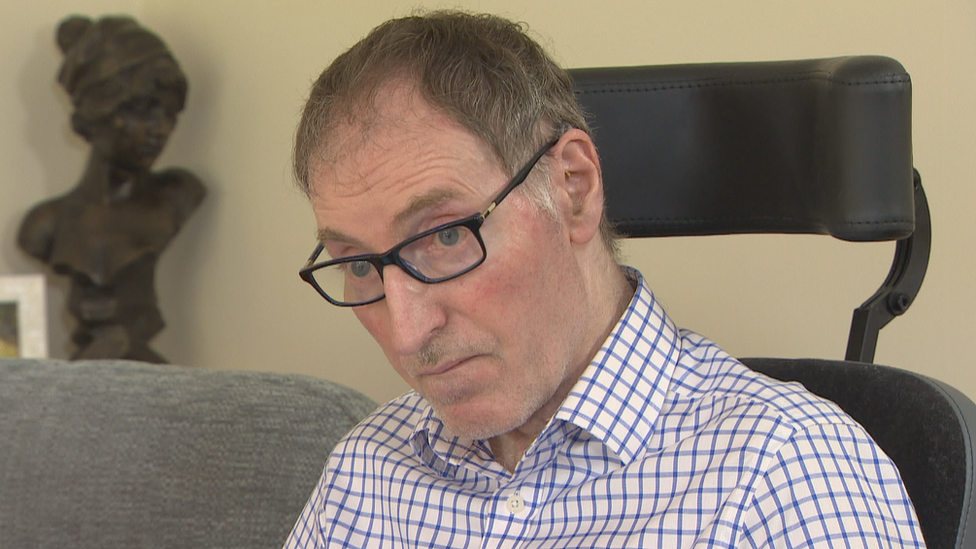
- Published2 April 2019
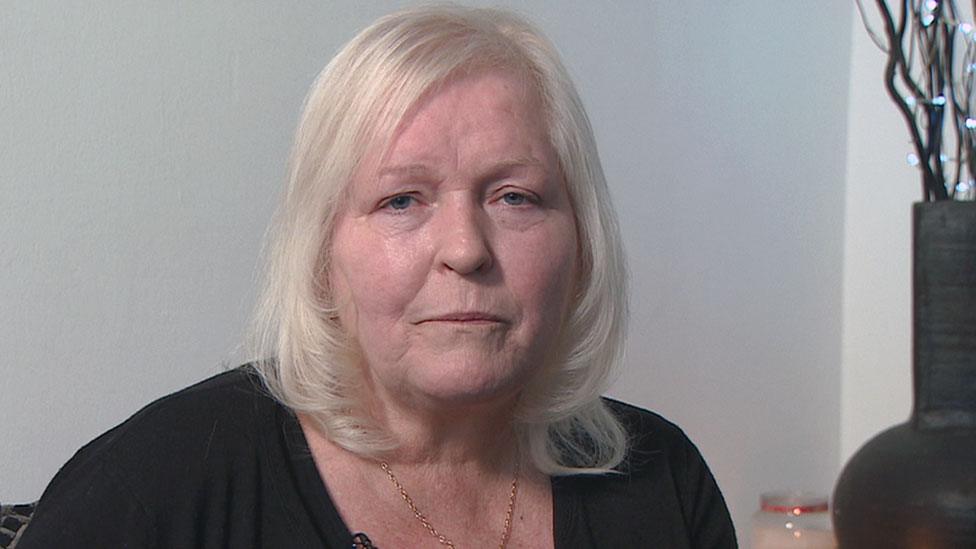
- Published27 May 2015
